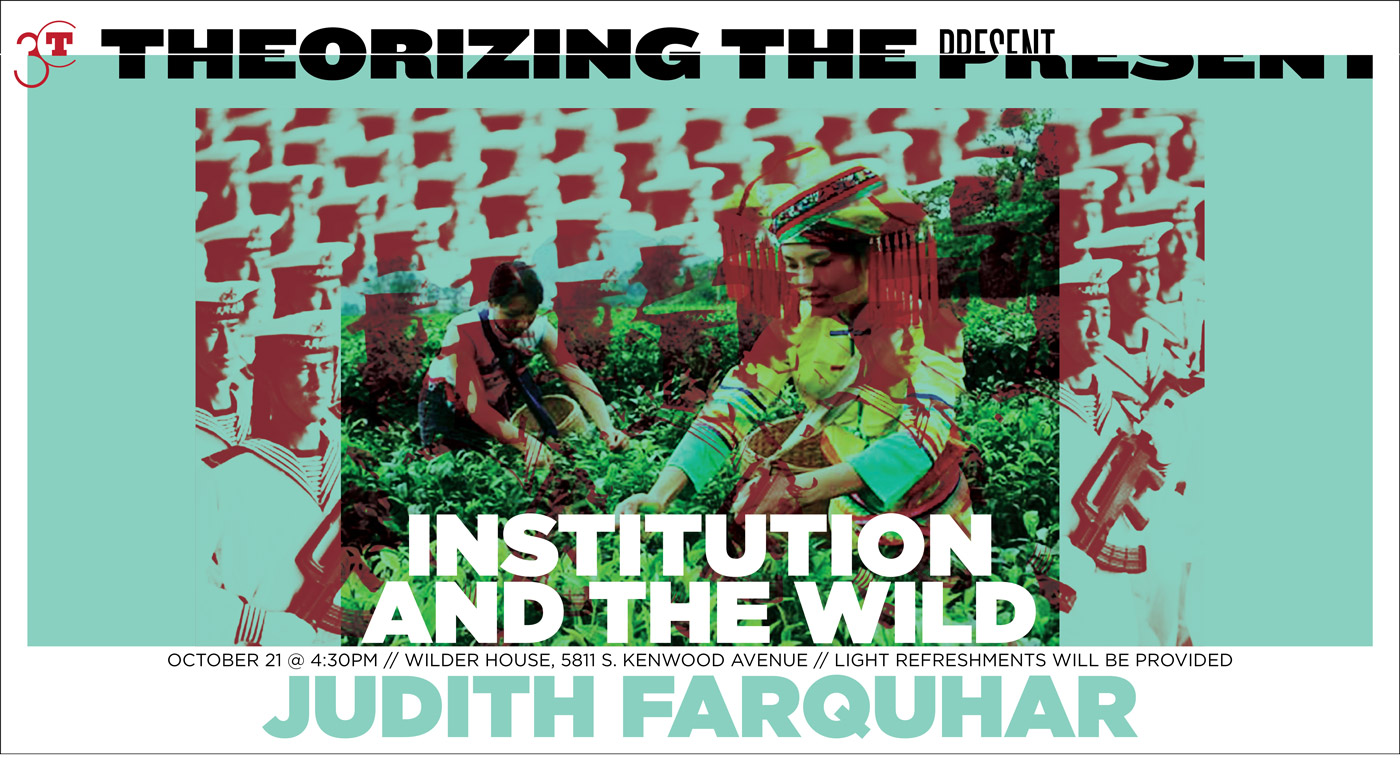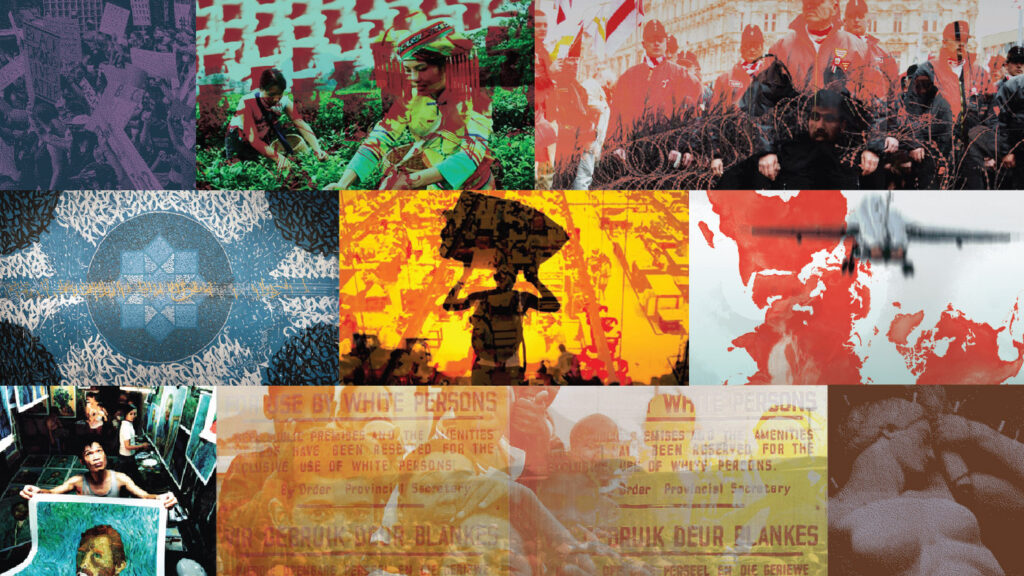Categories
Judith FarquharInstitution and the Wild
Tuesday, October 21, 2014, 4:30pmThis talk references “Institution and the Wild: Salvaging and Sorting Minority Medicines in China,” by Judith Farquhar (UChicago) and Lili Lai (Peking University Institute of Medical Humanities).
“Institutions” evoke officialdom. The state. An enframing and thus determining Structure, the constraining Other to our Freedoms. Here my co-author Lili Lai and I want to propose a different significance from the point of view of our field study of emergent minority medical systems in southern China. We take literary and media theorist Samuel Weber (Institution and Interpretation) and political theorists like Jane Bennett (Vibrant Matter, Thoreau’s Nature) as starting points that lead us into southern/Chinese/mountain conceptual resources. In this collaborative research on the state-led project of building ethnic groups and traditional medicines, we explore the relations that can exist between public and formal knowledge/governance practices and “wild” lore, authority, and forces. We want to deploy both terms anew, however. We see institution and wildness as analytic tools that help us rise to the occasion of understanding power and knowledge in “ethnic” southern China. These developments have been going under the name of salvaging (发掘) and sorting (整理) the traditional medicines of the nation’s 55 minority nationalities, or ethnic groups.
We first say a few words about the potential of “institution” and “the wild” for clarifying the processes in which traditional knowledge and “minority nationality” medical practices are emerging now. Then we introduce a healer, Dr. Zhao, who not only wears many hats but embodies and institutionalizes Zhuang nationality medicine as a mixture of forms, which he capably gathers from strands of tradition, market opportunities, and elements of legal mediation. We close with the situation of a Qiang nationality healer, Dr. Li, whose mixing of wild and official activities is quite different from Dr. Zhao’s, and whose view of the promises of institution and wild knowledge is perhaps more bleak and tragic. Perhaps there are lessons in the work of these expert healers that could address some anthropological ailments.
Judith Farquhar (PhD, U Chicago 1986) is the Max Palevsky Professor of Anthropology and of Social Sciences in the College. She researches traditional medicine, popular culture, and everyday life in contemporary China. Her anthropological areas of interest include medical anthropology; the anthropology of knowledge and of embodiment; critical theory and cultural studies; and theories of reading, writing, and translation. Recent publications include Ten Thousand Things: Nurturing Life in Contemporary Beijing, co-authored with Qicheng Zhang (Zone Press 2012) and Appetites: Food and Sex in Post-Socialist China (Duke University Press 2002), (Chinese translation: Taotie zhi Yu: Dangdai Zhongguode Shi yu Se. Jiangsu People’s Publishing House, 2009).

